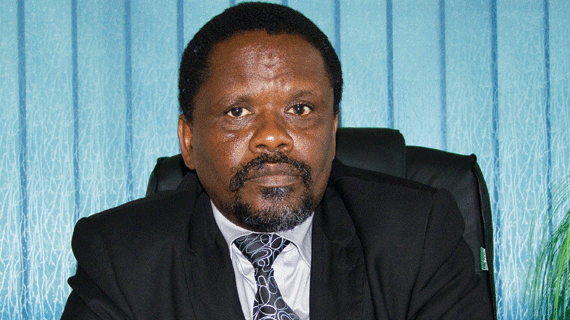
EARLY in the morning on Monday I walked into the bank to be greeted by a man in a suit. The man introduced himself as the new branch manager of the bank.
He enquired whether I had a personal account or an organisation’s account. The man pulled out his business card and gave it to me. Before I left the bank, he had greeted more than five people in similar fashion.
As I walked out, he wished me a pleasant day.
I further observed that the attitude of the bank staff, from security guards to cashiers and receptionists, had changed for the better. This is what in management is called walking the work floor.
It is an intentional and voluntary decision to leave the armchair and its comfort to meet both clients and staff members.
This man was not only greeting clients as they came in, but was directing those that needed such assistance.
I was reminded of Stephen Covey’s latest book The 8th Habit — From Effectiveness To Greatness! Covey argues that the voice is a unique personal significance which jumps to the fore when faced with greatest challenges, thereby enabling the challenged to stand up to challenges.
According to Covey, the voice lies at the nexus of talent, position, need and conscience.
- Chamisa under fire over US$120K donation
- Mavhunga puts DeMbare into Chibuku quarterfinals
- Pension funds bet on Cabora Bassa oilfields
- Councils defy govt fire tender directive
Keep Reading
In this context, talent is made up of natural gifts and strengths, while passion comprises of those attributes that naturally energise, excite, motivate and inspire oneself.
On the other hand, need includes what the world needs enough to pay you for. Lastly, conscience is that still small voice inside a person which assures one of what is right as well as propelling the individual to perform.
In the circumstances, greatness entails personal, natural endowments, motivation and inspiration to name a few.
What is it that the world misses you for? Finally, is the conscience alive or dead? This makes a difference between greatness and nonentity.
In an age when people are obsessed or even drunk of chiefdom, here is a man who takes it upon himself to perform the duties of an usher when he is the manager.
Also coming to mind is Dan Soli’s definition of wisdom, which he views as going beyond the power to discern between good and evil, to having the right understanding of how to treat others and applying the same wisdom.
People bereft of self-confidence climb mountain tops to be seen and heard; yet great people kneel down to serve guests.
According to the gospels, if you are invited to a wedding, do not take a seat at the high table as you may be embarrassed when those for whom the seats are reserved come and you are kindly, yet embarrassingly, asked to climb down in dishonour.
I think it would not be offending business ethics, to mention who this different manager is. He is none other than Denley Watama, branch manager at ZB Bank Rotten Row branch, Harare.
According to his business card, he is former manager for ZB Bank’s Msasa branch. Someone may think I am exaggerating the greatness, let alone the effectiveness of this man, I am not.
What impressed me most is that this culture of choosing to serve humanity is dead. It is amazing to note that there is still someone in the mad crowd who is practicing servant leadership.
Self appointments are the order of the day. People’s views are not considered. Chiefdom has permeated every sphere of society, including the church. One once remarked; today’s people are for titles and not towels.
Towels refer to Jesus taking a towel, kneeling down and washing the soiled feet of his disciples. He chose the towel instead of the title, which he rightfully deserved, that of King of Kings and Lord of Lords.
Monday’s edition of NewsDay carried a press statement issued by the country’s Vice-President Joice Teurai Ropa Mujuru. Of both interest and noting is the candidness, humility, yet pointedness of the statement.
Politics aside, the statement is an epitome of servant leadership, a submission to people’s will and a lone cry for democratisation of institutions, including political ones. She goes on to remind the nation that leaders are elected by people to serve the electorate.
In addition, she offers herself to the scrutiny of both her party and judicial system of the country, if any wrongdoing is established.
She offers herself to serve the nation in any capacity and shows she is a God-fearing woman. She ends up by saluting Zimbabweans for giving her an ear.
This is what Covey calls greatness.
Jesus was brought before his accusers and as a sheep before his shearers, he opened not his mouth. His final prayer was: “Father forgive them for they do not know what they are doing.” A great leader with a difference.
Feedback: E-mail: [email protected]










